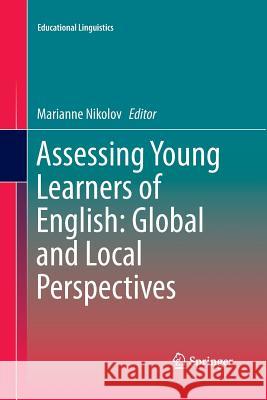Assessing Young Learners of English: Global and Local Perspectives » książka
topmenu
Assessing Young Learners of English: Global and Local Perspectives
ISBN-13: 9783319361598 / Angielski / Miękka / 2016 / 338 str.
Kategorie:
Kategorie BISAC:
Wydawca:
Springer
Seria wydawnicza:
Język:
Angielski
ISBN-13:
9783319361598
Rok wydania:
2016
Wydanie:
Softcover Repri
Ilość stron:
338
Waga:
0.49 kg
Wymiary:
23.39 x 15.6 x 1.85
Oprawa:
Miękka
Wolumenów:
01
Dodatkowe informacje:
Wydanie ilustrowane











